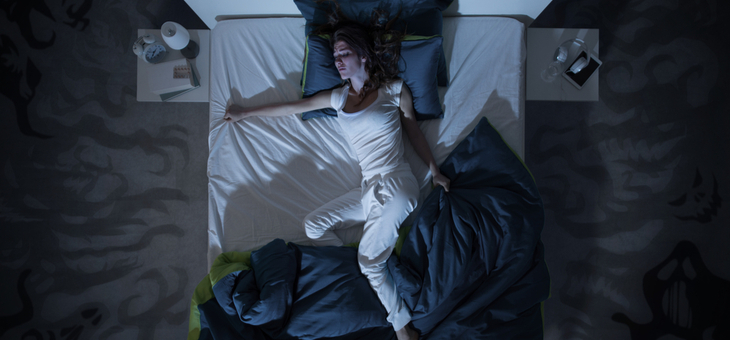If you have been repeatedly woken up in the middle of the night or in the morning by excessing sweating that has soaked your pyjamas and bed sheets, you have likely experienced night sweats. Night sweats, defined as perspiration in excess of that required to maintain a healthy body temperature, is a symptom associated with menopause, medications and other underlying medical conditions and illnesses.
What can cause night sweats?
Night sweats may be caused by medical conditions such as infections like HIV or tuberculosis, cognitive heart failure and some cancers including lymphoma and leukemia. It may also be a side-effect of some medicines including certain hormone treatments, diabetes medications and some antidepressants. Night sweats may also be caused by the over consumption of alcohol, tobacco, caffeine and some illicit drugs. However, night sweats are commonly experienced by women who get hot flushes during menopause.
How are night sweats different from hot flushes?
While both are associated with menopause, and are often used interchangeably, they are actually different things. Hot flushes describe a sudden feeling of being very warm and are accompanied by the reddening of the skin due to increased blood flow. While hot flushes can occur during the day or night, when they occur at night alongside heavy perspiration, they are called night sweats. Night sweats can occur alongside flushing but flushing alone does not cause night sweats.
How can you prevent night sweats?
While some causes of night sweats can’t be prevented, others can. Early treatment of underlying infections, keeping your bedroom cool at night, and avoiding alcohol, caffeine, tobacco and illicit drugs may help prevent you from developing night sweats. Drinking hot drinks, eating spicy food or exercising can increase your body temperature, so they are best avoided before bed.
When should you be concerned?
If you experience night sweats frequently, if they wake you or are accompanied by other symptoms, you should consult your doctor. These accompanying symptoms include a cough, unexpected weight loss or a high fever.
What can be done about night sweats?
Your doctor will first identify the underlying cause of your night sweats. If this turns out to be a medication you are taking, your doctor will likely recommend an alternative medicine or adjust the dosage you are currently taking. If your night sweats are caused by an infection, you will be prescribed an antiviral medicine or antibiotic to help treat it. If your night sweats are a symptom of cancer, then your doctor will suggest a series of treatments including, but not exclusive to, surgery and chemotherapy.
If the over consumption of caffeine, alcohol or drugs is to blame for your night sweats, your doctor will advise you stop or limit the amount that you consume. Counselling and medications may be recommended to support this process in some cases.
If your night sweats are disrupting your sleep and are associated with menopause, your doctor may recommend hormone therapy alongside other medications including clonidine, venlafaxine and gabapentin. Hormone therapy may also help to reduce other symptoms of menopause.
Other lifestyle changes, such as sleeping with the air conditioning or a fan on, wearing thinner pyjamas, sleeping with a window open or with fewer covers may also help to ease the impact of night sweats on your sleep.
Do you experience night sweats? How do you manage the symptoms? Do you have any advice for other YourLifeChoices readers who do experience them?
If you enjoy our content, don’t keep it to yourself. Share our free eNews with your friends and encourage them to sign up.
Related articles:
https://www.yourlifechoices.com.au/health/your-health/most-sufferers-unaware-they-have-it
https://www.yourlifechoices.com.au/health/your-health/steps-to-minimise-allergens-in-your-home
https://www.yourlifechoices.com.au/fun/entertainment/bizarre-facts-about-the-human-body
Disclaimer: This article contains general information about health issues and is not advice. For health advice, consult your medical practitioner.

